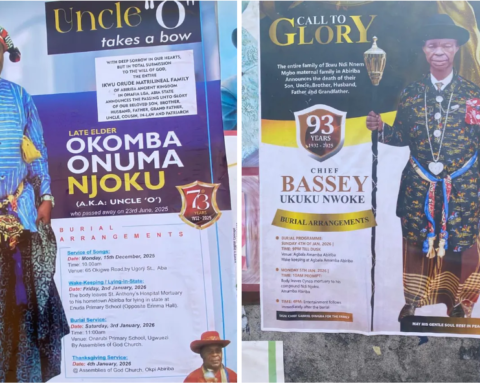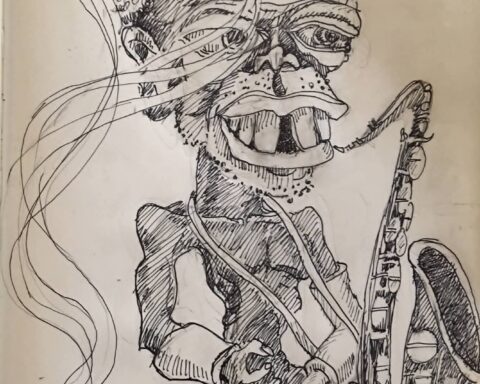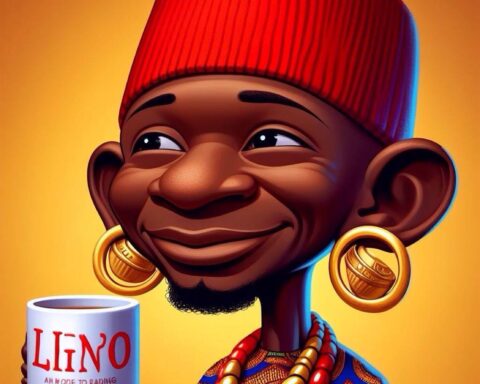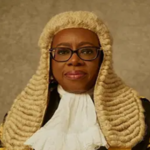Basil Okoh
There have been outpourings of praises on Muhammadu Buhari since the announcement of his death. The beneficiaries of his selective public gestures have been effusively and overly generous in their plaudits of the taciturn but vengeful man.
Two historical occurrences deeply defined Buhari’s public life. The first was the accusation of his involvement in the missing N2.8 billion ($4.5 billion at the time) from NNPC accounts during his tenure as Petroleum Minister under Olu Obasanjo’s military government 1976 – 1979. The accusation was made by Alhaji Sola Saraki, NPN and majority leader in the Senate of the Second Republic 1979 -1983. That incidence triggered a news report by Vera Ifudu on NTA News on the presentation of Saraki’s report to the senate. There was a mighty scramble by the Obasanjo government to kill that news but there was to be a follow-up revelation that the money was moved to the Midland Bank in the United Kingdom, from where it could no longer be traced. Every information became foggy after that, even after an investigative panel was set up to investigate the humongous theft. Nothing came out of the investigation and Vera Ifudu was suspended from NTA and never came back. She too disappeared from the radar and public memory as the nation moved on. But the incidence did not disappear from the public mind and Buhari spent the rest of his lifetime denying and reacting against that accusations as it punctured the myth of his honesty and as it was the first time the theft of such a stupefying sum was called in Nigeria. Thereafter, Buhari withdrew into himself until the last day of 1983. One of the first actions he undertook as president was to demand for the file and reports of that incidence and destroyed them.
In the course of the civilian era 1979 to 1983, Buhari achieved international notoriety as the Officer Commanding the Second Division of the Nigerian Army based in Jos. His Division was charged with the task of attacking and defeating the stateless bandits marauding the North-Eastern Nigerian border in the Lake Chad region. Buhari took command and not only successfully chased the stateless army out but against orders, pursued them almost to the gates of Ndjamena town, capital of Chad, causing an international uproar.
Many believed that Muhammadu Buhari had a tacit agreement with Muammar Ghadaffi, then president of Libya to form a greater trans-Saharan Muslim nation covering the Sahel and Maghreb Africa. Until both died, there were secret files in major service agencies on Muhammadu Buhari collaborating with Ghadaffi to form a dominant Muslim nation encompassing both regions to provide a home not only for his native Fulani but also for the Muslim peoples of the Sahel using the resources of Nigeria as an economic base and it’s ports as the southern access to the Atlantic.
During his tenure as president, the World Fulani Council was formed and a grand but secret meeting was hosted in Abuja in 2018. The highpoint of that meeting was the decision to use Nigeria as the adoptive native country of Fulani across Africa and to institute a $70 billion fund to finance the Fulani political agenda across Africa using Nigeria as a home base. It was after that meeting that all the troubling pro-Fulani policies began to be enacted including the removal of defensive hand guns from the hold of native communities to enable easy conquests by Fulani marauders, RUGA, removal of the presentation of passports at Northern borders and the intensification of attacks on indigenous communities. These were all part of the implementation of policies to inject Fulani into indigenous communities and make them take control. And these were all programs forged by the Fulani World Council for the implementation of the Buhari government to enable the eventual conquest and takeover of Nigeria by the Fulani.
The local and international resistance to these policies created turmoil and cratered the economy of Nigeria even though Nigerians did not understand the full intent and endgame of the Fulani plan. These resistance forced Buhari to a disorganized implementation of the policy plan and in the end, the inability to achieve the overall objectives of the policy. But then the plan lives. If there is a quality that the Fulani have in their native culture, it is the unending patience to wait out resistance and prepare for emerging circumstances and opportunities. They are waiting now for another Fulani to emerge as the president of Nigeria and resume the implementation of their long term plan. The Fulani believe in the long game and that is why they count in seasons, not in days or months.
It is not for nothing that Atiku Abubakar continues to insist on his right to rule Nigeria after so many failed attempts. Any entry by Atiku Abubakar to a contested presidential primaries will be funded from the Fulani Fund to achieve victory. It must be noted that the Fulani agenda must not be confused with the Muslim agenda in Sahel Africa. They are two different and conflicting objectives.
The second incidence that impacted Buhari’s public life was his overthrow as military Head of State by Babangida’s faction of the military junta in 1985. After the coup to replace him, Buhari was placed in isolatory detention for many years, during which he lost his mother and was not allowed to participate in her funeral obsequies. His family fell into disarray and he eventually divorced his wife. That episode led to a vengeful heart which never really forgave Babangida and his faction of the military junta and this hatred extended to a deep disdain of the Nigerian people. He carried this vengeful heart to his rule as a democratic president and practiced it without remorse on Nigerians. His much touted ascetic life and honesty was just an invention of the media arising from his taciturnity and regressional nature which he foisted on public policy.
Buhari was a highly bigoted man in the two important facets of his life: ethnicity and the Islamic religion. His mind was so much emotionally ruled by his Fulani ethnicity even as a child that he only learnt to speak Hausa, the language of the people among whom he lived, as a teenager. As he entered the Presidential Palace, he asked that the Christian Chapel in Aso Villa be destroyed and a mosque built in its place. He ruled without any concessions or protection of the Hausa or Christian groups and communities while promoting Islam and Fulani ascendancy.
Muhammadu Buhari has died as every one of us must, but let everyone be mindful in rendering the truth of a mans life so the world and coming generations can learn the truth that build better lives and society. It is always wrong to write and say fancy untruths about a mans life when we had a chance to tell him the truth and help mend his ways while alive. The children dancing on the streets of Katsina on the announcement of the death of Buhari are no fools. They knew the man and what he did to their future.
@basilokoh.



























